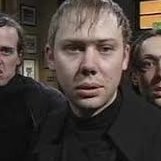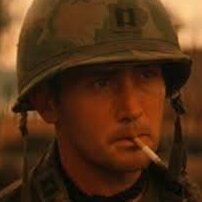-
Sign up for free and receive a month's subscription
You are viewing this page as a guest. That means you are either a member who has not logged in, or you have not yet registered with us. Signing up for an account only takes a minute and it means you will no longer see this annoying box! It will also allow you to get involved with our friendly(ish!) community and take part in the discussions on our forums. And because we're feeling generous, if you sign up for a free account we will give you a month's free trial access to our subscriber only content with no obligation to commit. Register an account and then send a private message to @dave u and he'll hook you up with a subscription.
Golden skies return to Anfield as a new dawn emerges - Chris Bascombe
-
Recently Browsing 0 members
- No registered users viewing this page.
-
Who's Online 100 Members, 2 Anonymous, 569 Guests (See full list)
- Clark Westerfeld
- Planet Origi
- Lisa
- John102
- Kevin D
- Joey8FrogsLegs
- Heinrici
- KMD7
- George Costanza
- Carvalho Diablo
- Gareth
- balmort
- YorkshireRed
- Curly
- Dave D
- Mike D
- TheHowieLama
- Jairzinho
- Tj hooker
- Babb'sBurstNad
- an tha
- Dr Nowt
- VladimirIlyich
- Bobby Hundreds
- Mook
- redinblack
- TD_LFC
- CaliRed
- andyj
- 3 Stacks
- 5Rings5Cups
- ObifanForLife
- SasaS
- Scooby Dudek
- Mil-ing Around
- i5x
- derykw
- suzy
- torahboy
- Doogyrev
- Tenfolder
- The Midnight Rambler
- Torvald Utne
- Rico1304
- AHA
- Captain Willard
- rafaisgod
- etho
- Fowlers God
- manwiththestick
- Red Phoenix
- morourke
- The Guest
- Skidfingers McGonical
- johnsusername
- Jennings
- Rushies tash
- Smell The Glove
- Wezza
- Captain Howdy
- VERBAL DIARRHEA
- Mathewbet1
- lebron
- GR10 LFC
- Lee909
- Mark M
- Bolo locks
- Huevón
- Moo
- Tarwater
- Jack the Sipper
- Byrnie
- RedHeadedRed
- Hajduk spliff
- BeefStroganoff
- Double 86
- KevieG
- AngryOfTuebrook
- A Red
- sir roger
- Gareth Murphy
- Gruntfuttock
- Numero Veinticinco
- Elite
- Barrington Womble
- Manny
- Vector Sigma
- cwoods
- Geoff Woade
- dandyman
- Gnasher
- Section_31
- bossy
- Juniper
- Creator Supreme
- TheDrowningMan
- Scottish Steve
- cloggypop
- bizzle10
- Denis Šećković





Recommended Posts
Join the conversation
You can post now and register later. If you have an account, sign in now to post with your account.